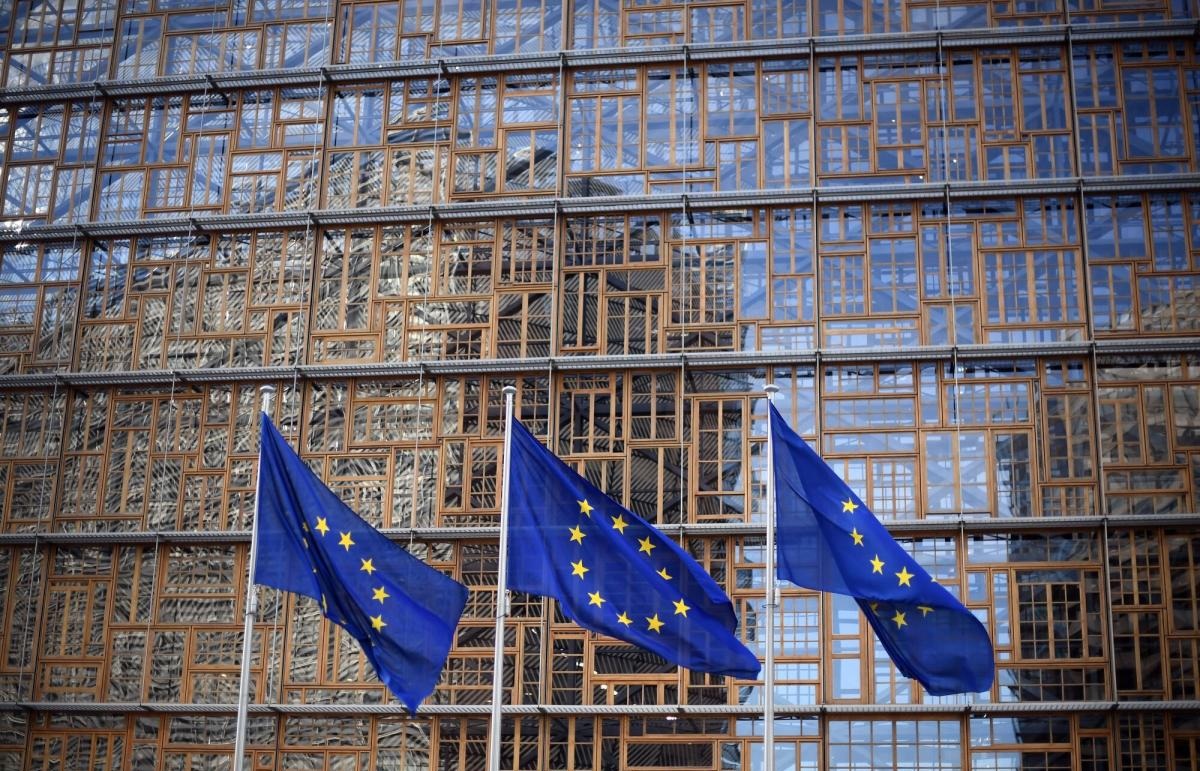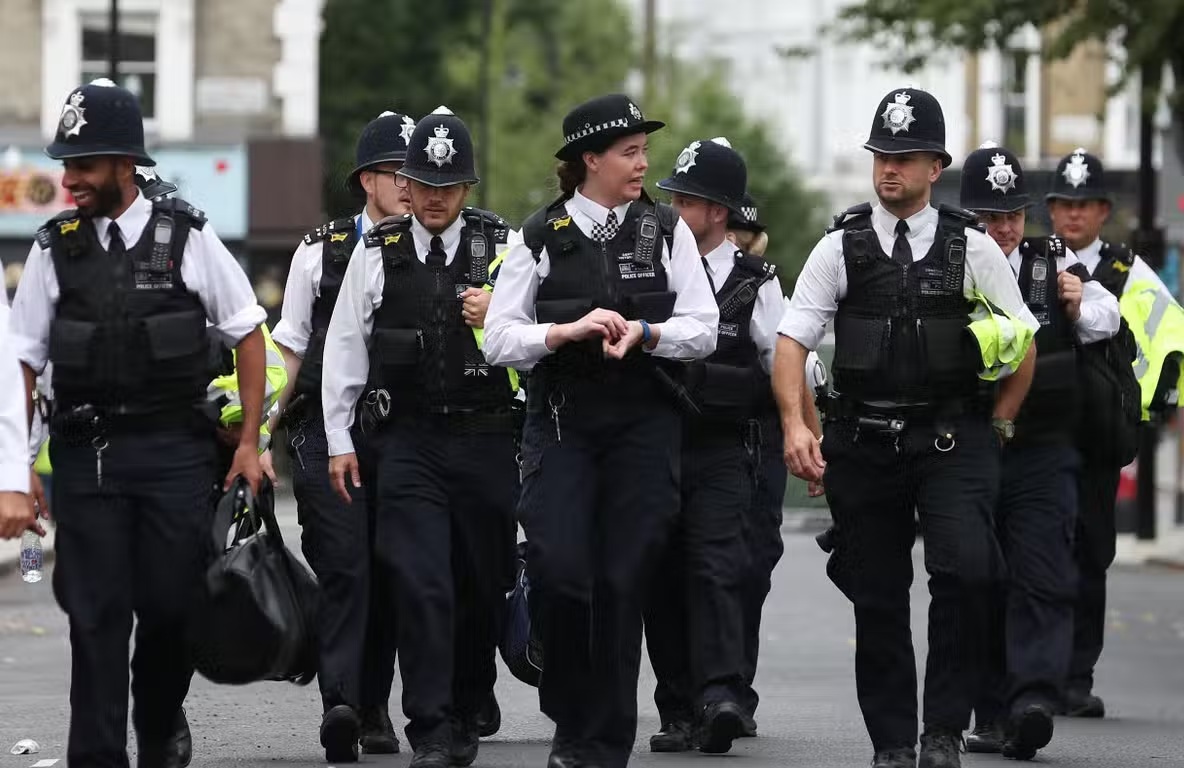Dr. Rumyana Grozdanova
Anjem Choudary, once accused of “poisoning the minds of the vulnerable” was released on licence from Belmarsh prison on Friday, 19 October. Prior to his conviction, Choudary and his extremist groups were thought to have influenced at least 100 people from Britain to pursue terrorist activities.
His notoriety at the time was such that he was described as “a key influence in the spread of the jihadi movement in the Netherlands” by the Dutch intelligence agency AIVD. In September 2016, Choudary was convicted by a jury of an offence contrary to Section 12 of the Terrorism Act 2000 (TA), namely inviting support for a proscribed organisation which in this case referred to Islamic State (IS).
During the sentencing, the trial judge noted that Choudary was likely to resume spreading his message and thus would continue to pose a threat. However, as the provisions of Chapter 5 of the Criminal Justice Act 2003, did not apply to the offence under Section 12 TA, the court had no power to impose an extended sentence. At the point of his release, Choudary had served half of the five-and-a-half-year sentence imposed on him.
His early release has yet again triggered the rights vs. security discourse; a discourse which, in recent years, does not require much of an invitation to resurface either domestically or internationally – unconstructive as it is.
At its general core, the debate focuses on whether and how human rights obligations impede the effectiveness of counter-terrorism measures. In the particular context of this and other similar cases, this discourse transforms into the more specific enquiry of whether the right to freedom of expression hinders the adoption of preventative measures capable of (severely) constraining the ability of extreme and radical speakers to incite or encourage acts of terrorism.
Neither the general debate nor the specific enquiry sufficiently reflect, however, on what should be an essential concern in this context: what impact do restrictive legislative provisions have on addressing incitement and encouragement for terrorism in the longer term? To put it differently, is persistently updating the range of available prevention measures the most suitable approach to address why extreme and radical speakers find fertile ground in which their message transforms into the violent action?
States should be as determined to address this question as they are in finding more immediate solutions such as banning individuals from certain areas for example. Just as a physician treats on-going symptoms while simultaneously looking for the underlying disease, so should states focus on both countering incitement for terrorism as well as understanding the root causes behind it.
Yet, as the recent approaches by states suggest, the emphasis is on immediate responses to symptoms rather than on identifying and treating the causal maladies.
In the intervening years after Choudary and other extreme speakers were convicted, the UK government has sought to close legislative gaps and refine communication restrictions rather than understand how words become consequential.
Proposals within the Counter-Terrorism and Border Security Bill 2017 – 2019, for example, seek to ensure that a Section 12 TA offence (inviting support for a proscribed organisation) will be eligible for an extended determinate sentence (EDS). Under an EDS, an individual must serve at least two-thirds of their custodial term in custody and then may be subject to an extended licence period of up to five years.
Further, taking heed to comments made by the Court of Appeal in the 2016 Choudary case, the UK government is proposing a new offence which criminalises the expression of an opinion or belief that is supportive of a proscribed organisation in circumstances where the perpetrator is reckless as to whether a person to whom the expression is directed will be encouraged to support a proscribed organisation.
Aside from updating the legislation, the UK government has also placed emphasis on licence conditions and in particular what may be the appropriate and necessary measures to contain an individual from spreading their message if an extreme speaker is released before the end of their custodial term.
The licence conditions currently imposed on Anjem Choudary could provide an indication of what other individuals convicted of similar offences can expect. He must comply with a strict curfew, restrictions on travel within and outside the UK, no use of the internet without prior permission, controlled use of one specified mobile phone and periodic visits from police officers amongst other measures.
He has also been added to the terrorist sanctions list operated by the UN Security Council and to the British Treasury’s sanctions list for terrorist supporters. The measures are intended to prevent him from exploiting his notoriety and existing networks to reengage with activities contrary to Section 12 TA or commit new, similar, offences.
To put it differently, even if he has become more extreme in his views and more committed to spreading them, the licence conditions are such as to severely, if not entirely, restrict access to his potential audience.
Whether viewed individually or as a whole, these measures are quite illustrative of the emphasis on restricting access to means of communication and imposing limitations on movement to pre-empt further incitement to terrorism or inviting support for a proscribed organisation.
The UK is not the only European country to adopt such an approach. In late 2017, the Hague imam Fawas Jneid had a six-month area ban imposed and reaffirmed. Under the conditions of the ban, he was not allowed to visit the districts of Transvaal and the adjacent Schilderswijk as his intolerant message was deemed to pose a threat to national security.
While expressing his approval for the imposition of the area ban, the Hague mayor, Pauline Krikke, noted that she wanted to prevent the imam “from gaining a foothold in the city at any cost.” She continued on to say that, “many residents [in Schilderswijk and Transvaal] are working hard to improve the neighbourhood, which I do not want to be disrupted by giving a stage to someone who contributes to the radicalization process and creates a climate in which jihadists can thrive”.
Under the 2017 Law on Interim Act on Counter-Terrorism Administrative Measures, an area ban restricting an individual from being located in a certain part(s) of the Netherlands or prohibiting the individual from being in contact with one or more specific persons can be imposed for a period not exceeding six months.
The ban can be extended for a second six-month period if it is deemed necessary on national security grounds. Thus, if an individual seeks to exploit tensions within vulnerable neighbourhoods and consequently contributes to “a breeding ground for jihadism”, there are measures available for a more immediate action to treat the symptoms.
The legislation does contain evaluation mechanisms – within three years of the law coming into force, the Minister for Justice and Security has to submit a report to Parliament on the practical effectiveness and impact of the relevant provisions. In this context, it will be interesting to see what response Belgium might adopt upon the release of Jean-Louis Denis – a well-known recruiter in Brussels. Denis, convicted for inciting young people to fight in Syria and engaging in hate speech, is due to be released in December 2018 after a five-year sentence.
Despite being eligible, he refused to apply for parole so as to avoid being subjected to restrictive conditions upon early release on licence. Twenty-nine other individuals convicted of terrorism-related offences appear to have adopted the same approach and are due to be released by 2020.
As the above cases illustrate, the measures restricting access to means of communication, association and movement have a built-in temporal component, which eventually results in the specific restrictions coming to an end – whether it is the completion of a sentence or the expiration of a set time period. Persistently proposing new offences when existing legislation provides for “just about every descriptive action in relation to terrorism” should not be the automatic response.
Yet, the Holy Grail that states appear to want to find is this: how much interference and/or restrictions of the right of freedom of expression could be proportionate (and palatable) to allow for pre-emption of incitement to terrorism as early as feasible. By focusing on proportionality, states are in effect seeking to achieve the right balance between respect for existing legal obligations, judicial precedent, cultural and societal sensitivities and the restrictiveness of the suggested measures.
This pursuit is however based on the fallacy that such a “right balance” actually exists. This fallacy also assumes that once the right to freedom of expression is restricted in the manner proposed, the subsequently adopted counter-terrorism measures will be automatically effective and achieve the required aim.
More importantly, the search for the “right balance” tends to overly focus on how to deal with individual extreme and radical speakers. This shifts attention away from the root causes, which have led to the existence of a fertile ground within which their extreme and radical words develop into violent action.
What governments should do instead is place more emphasis and direct more expertise and resources towards resolving these root causes. Such an approach would have the additional benefit of not requiring “a right balance” to be found between human rights and restrictive counter-terrorism measures. To put it differently, regardless of how effective an extreme and radical speaker is, the automatic (and only) response should not be one of expanding the relevant legislation – at least not before also examining other policy and legal interventions.
Exploring the wide range of legal powers currently available in the statute books, in particular how these powers can be used in conjunction with one another, in order to better capture the full range of criminality both at present and in the future is an example of such alternative legal intervention.
As noted by the UK Independent Reviewer of Terrorism Legislation “we must be vigilant against any future instances of ‘knee-jerk’, something must be done law-making”. And rather than getting caught up in legislative fever and hurried symptoms treatment of incitement and encouragement for terrorism, legislators and policymakers should instead take a step back and cogently consider how to better address the causal maladies.
icct




